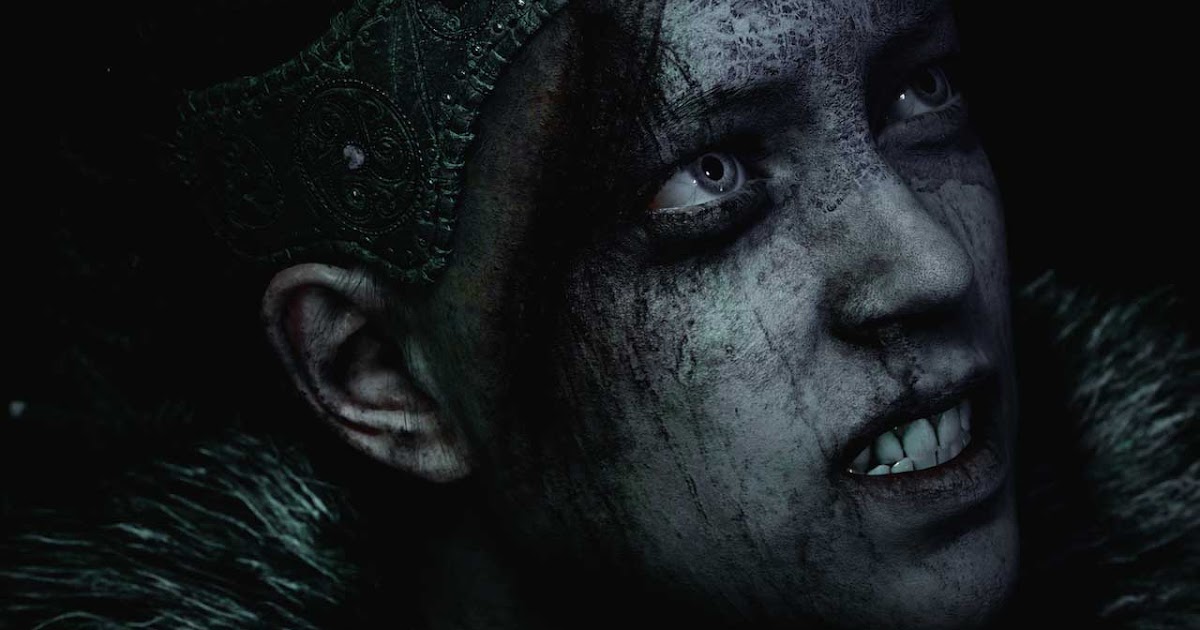Hellblade: Senua’s Sacrifice impresses with sight and sound, but there isn’t any meat on the game’s bones.
Developer Ninja Theory’s latest work is a third-person action experience with all the depth of a mobile game, disguised by a thoroughly impressive audio/visual presentation. The title follows Senua, a Celtic warrior driven insane by the tragic death of her lover. She descends into the madness of her own personal hell in a quest to save his soul.
I can still hear Senua’s voices in my head. Her existence is a haunted one, and the constant chatter of doubt and fear, rage and pain, was oppressive. But even while they linger, I am hard pressed to recall a single moment where I enjoyed actually playing Hellblade: Senua’s Sacrifice. The game, which Ninja Theory states was “created in collaboration with neuroscientists and people who experience psychosis,” is a fascinating rumination on mental illness, couched in the fantastic horror of Viking mythology, but it just isn’t much of a game.

Combat is rudimentary, and every enemy in the game follows the same pattern. Press a button to dodge or parry until you have the opportunity to strike, and then repeat ad nauseum until the fight is over. There are light and heavy attacks to add a measure of variation, though they feel redundant in practice.
There is a button to slow everything down and make your attacks more potent, too. Mostly, it feels like a welcome relief from fighting some of the endlessly repetitive enemies.

The entirety of your time in Senua’s world will be spent running along a thinly veiled corridor, broken up by occasional puzzle areas. Exploration is almost always punished — there are precious few paths that you will not be forced down at some point, and there are no rewards for your diligence in scouring the environment. It is a game that begs to be thoughtfully considered, then forces your gaze solely forward.
Much of the several hours of you spend with the game will be occupied by camera-hunt perspective puzzles that would only be mildly interesting, even if they were carefully measured. They aren’t. Being given yet another set of glyphs to pace around the environment with in search of a match is tiresome after the third time, and that barely covers the first hour or so. Before you can even enter Helheim, you’ll have already participated in about a dozen such errands.

Hellblade alleviates that tedium with arresting visual and sound design, only outshone by the sort of scenery-chewing protagonist I would love to see in a better game. I cannot overstate how compelling protagonist Senua herself truly is. She is beautifully animated, expressive, and actress Melina Juergens’ performance is easily one of the best we’ve seen in all of gaming. The interspersed live-action visions of Nicholas Boulton’s Druth, Senua’s mentor who she sees in visions, would be jarring in virtually any other game, but here a clever use of visual effects manages to make it work.
At $30, Hellblade is priced so that trying it out isn’t too costly a gamble. And despite its brevity and infuriatingly repetitive design, the presentation alone is something that many will want to experience for themselves. Still, as games go, this is little more than a flashy, bloody walking simulator. If you are compelled by the promise of its narrative clout, I have no qualms about recommending that you take a trip into Senua’s troubled psyche. But if you are looking for a great game to play, let the voices guide you elsewhere.
Follow Nate Church @Get2Church on Twitter for the latest news in gaming and technology, and snarky opinions on both.

COMMENTS
Please let us know if you're having issues with commenting.